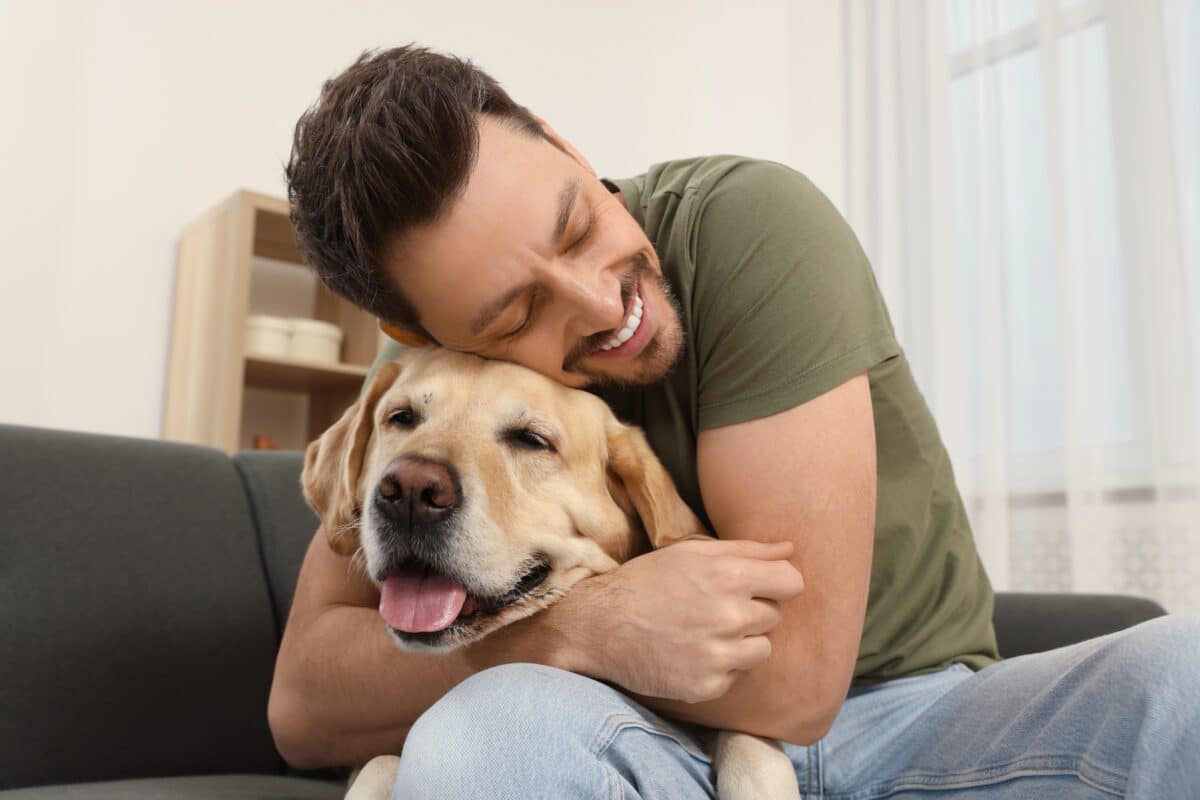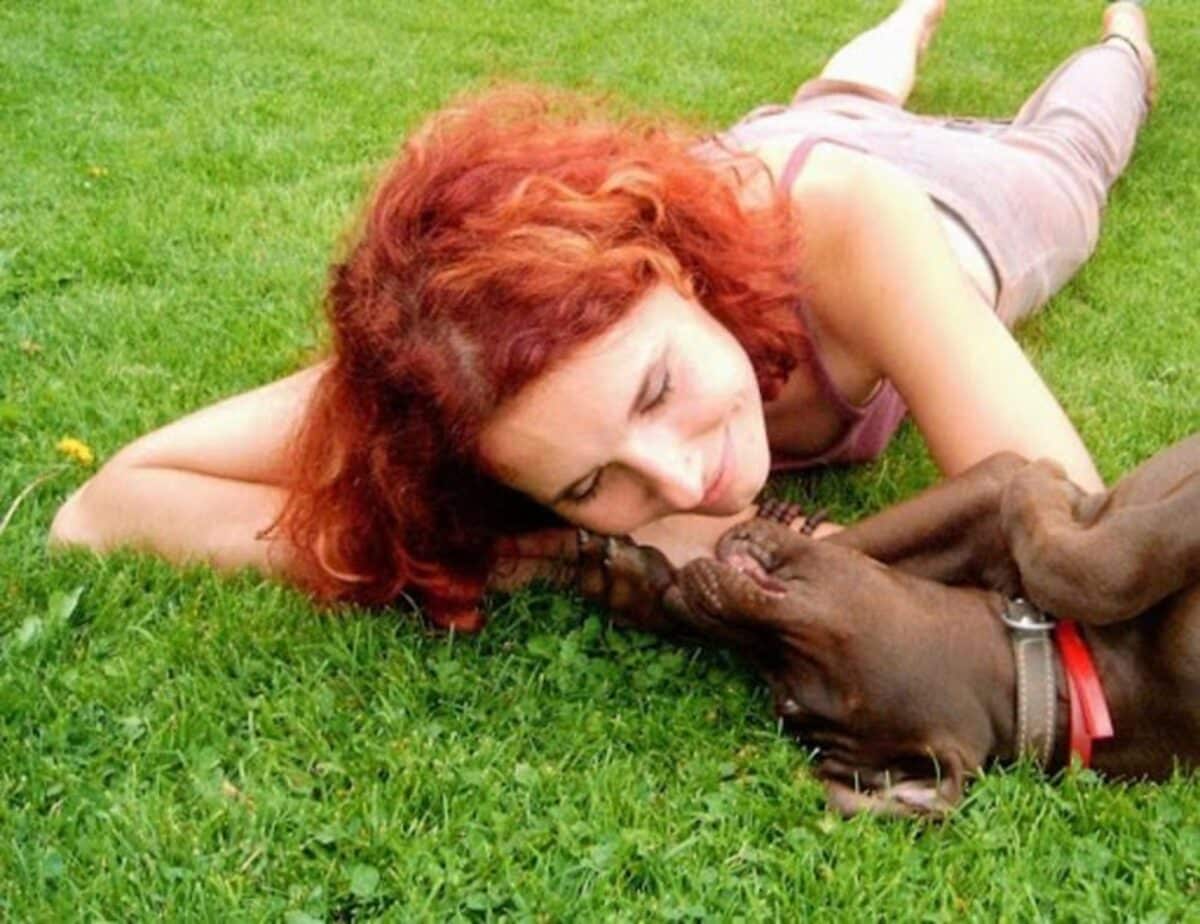
Dogs might make better friends than your actual friends. (New Africa/Shutterstock)
In a nutshell
- Dogs outrank most human relationships in satisfaction and support. Dog owners reported higher emotional fulfillment, greater companionship, and fewer conflicts with their pets than with relatives, partners, or friends. Only parent-child bonds offered comparable benefits.
- The dog-owner bond most closely mirrors a parent-child relationship. It combines strong affection and nurturance with minimal conflict, without the emotional baggage often found in human connections.
- Dogs don’t replace human relationships, they complement them. People with strong human connections also tended to have strong bonds with their dogs, suggesting our canine companions enhance, rather than substitute, our social lives.
BUDAPEST, Hungary — Your dog doesn’t criticize your life choices, start arguments about politics, or hold grudges, and that might explain why they rank higher in relationship satisfaction than most humans in your life. A new study from Hungarian researchers shows that dog owners experience greater relationship satisfaction with their four-legged companions than with their relatives or friends, with only the parent-child bond matching canine relationships in overall fulfillment.
This isn’t just about warm fuzzy feelings. The study, published in Scientific Reports, reveals that dog owners reported receiving more support from their canine companions than from any human relationship except their children. They also experienced fewer negative interactions with their dogs compared to most human relationships.
The Science Behind Dog-Human Bonds
What makes dog relationships so special? According to researchers, it boils down to three key factors: high companionship, opportunities for caregiving, and minimal conflict.
The researchers explain that dog-human relationships have a fundamentally different power balance than human-to-human connections, with owners maintaining primary control over their dogs’ lives. This asymmetric dynamic means dogs typically don’t engage in the kinds of behaviors that create conflict in human relationships.

The researchers sought to understand exactly how dogs fit into our social networks. While previous studies had established that most Western dog owners consider their pets family members, this study took a sophisticated approach by examining these relationships across 13 different scales.
Participants rated their relationships with their dogs and four human partners—closest relative, romantic partner, best friend, and child—using measures like companionship, conflict, nurturance, and satisfaction.
How Dogs Compare to Human Relationships
Dogs outperformed human relatives and friends on measures of affection, reliable alliance, reassurance of worth, and companionship. Romantic partners only beat dogs in one area: intimacy. Meanwhile, dogs scored lower on negative interaction measures like conflict and antagonism than all human relationships except friendships.
When examining all relationship patterns, researchers discovered that the dog-human bond most closely resembles the parent-child relationship, but without as many negative interactions.

“The results highlight that dogs occupy a unique place in our social world—offering the emotional closeness of a child, the ease of a best friend, and the predictability of a relationship shaped by human control—revealing why our bonds with them are often so deeply fulfilling,” says study author Enikő Kubinyi from ELTE Eötvös Loránd University, in a statement.
And people don’t just get dogs to compensate for lacking human relationships. People with positive human relationships also tended to have positive relationships with their dogs, suggesting that canines complement rather than substitute human connections.
“We expected that people with weak human relationships would rely more on their dogs for support, but our results contradict this,” says study author Dorottya Ujfalussy from ELTE Eötvös Loránd University. “In our sample, people did not seem to use dogs to compensate for the insufficient support in their human relationships.”
Factors That Influence Our Bonds with Dogs
Having children slightly changed how people viewed their dogs. Parents rated their dogs lower on companionship and affection scales than non-parents, though most other ratings remained similar.
“Dogs offer different kinds of emotional and social support depending on the needs of their owners,” explains study author Borbála Turcsán from ELTE Eötvös Loránd University. “Some people seek companionship and fun, others need trust and stability, and some simply enjoy having someone to care for.”
Instead of placing dog-owner relationships into predefined categories traditionally used in such studies—like “family member” or “pet”—this research better captures its complexity. Dogs provide us something increasingly rare in human relationships: consistent positive interactions without the baggage of criticism or conflict. They aren’t just pets but legitimate relationship partners who fulfill real psychological needs. Next time someone says “it’s just a dog,” science has given you permission to disagree.
Paper Summary
Methodology
The study used the Network of Relationships Inventory questionnaire to collect data from 717 participants, predominantly female (90%), with an average age of 35 years. Participants evaluated their relationships with their dogs and four human partners (closest kin, romantic partner, best friend, and child) across 13 relationship characteristics, including companionship, instrumental aid, intimacy, nurturance, affection, reassurance of worth, reliable alliance, conflict, antagonism, satisfaction, and relative power. Data was collected in two periods: 2011-2013 and 2022-2023. The researchers first validated that the same relationship scales could apply to both human and dog relationships using factor analysis, then compared ratings across different relationship types using paired statistical tests.
Results
The study found that owners rated their relationships with dogs higher than with most human partners on several positive scales, including companionship, nurturance, affection, and reassurance of worth. Dogs were rated lower than humans on negative interaction scales like conflict and antagonism. Overall, dogs received similar ratings to children, and their relationship pattern most closely resembled the parent-child bond. Relationship ratings showed minimal variation based on factors like having children, owner age, or dog age, suggesting dog relationships remain fairly consistent across different life stages. The researchers found positive correlations between how people rated their dogs and human relationships, indicating dogs complement rather than substitute human connections.
Limitations
The study acknowledges several limitations. The sample was predominantly female (90%) and likely self-selected for people with positive dog relationships, potentially painting an overly positive picture. There were far fewer participants rating relationships with children compared to other partners, which might have introduced bias. The subjective questionnaire method raises questions about whether people interpret scales differently for dogs versus humans, possibly inflating dog ratings. The researchers also note that the Reassurance of Worth scale showed questionable reliability when applied to dogs.
Funding and Disclosures
The project received funding from the Hungarian Academy of Sciences via a grant to the MTA-ELTE ‘Lendület/Momentum’ Companion Animal Research Group and the National Brain Programme 3.0. The authors declared no competing interests.
Publication Information
The paper “Similarities and differences between dog-human and human-human relationships” was authored by Borbála Turcsán, Dorottya Júlia Ujfalussy, Andrea Kerepesi, Ádám Miklósi, and Enikő Kubinyi, and published in Scientific Reports (2025, volume 15, issue 11871). The study was conducted at the Department of Ethology, ELTE Eötvös Loránd University in Budapest, Hungary.








JBS: The potential biases introduced by gender imbalance in studies examining dog behavior and human relationships include stereotypical expectations affecting interpretation, selection bias leading to unrepresentative samples, dynamics between handler and dog skewing interactions, biased behavioral assessments influenced by preconceived notions, overlooked cognitive differences due to inadequate representation, and negative impacts on adoption outcomes stemming from societal stereotypes.
JBS, How can this study on dogs relationship with humans be considered as reliable, as researched, as true as it sounds when the basis for the study was 90% women and 10% men? Why wasn’t it based on 50% women and 50% men in order to create a balanced understanding of a dog’s importance in our lives?
I am a 73 year old man, dogs rule. I like dogs more than people as a rule. The biggest problem is life span, they should live as long as we do. I recently lost my friend. He ( Batman) was very sick. On November 19th 2024 I helped him Cross the rainbow bridge. It’s almost May 2025 and I have a tear in my eyes just typing this. I miss him so.
The quote “Dogs and philosophers do the most good and get the least reward” is often attributed to Diogenes, a ancient Greek philosopher from the 5th century BC.
Love your dog – great. Please don’t bring them on planes or in restuarants. Thank you.
Kids are overrated. Dogs for the win!
amen!!
Classify under: You just now figured this out?
I’ll give you one more, when genetically engineered human babies come into their own people will design their babies to very much like dogs more so than super men. They go with sycophancy, mindless affection and cute deformities.